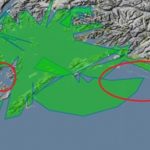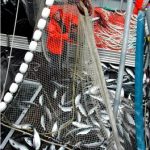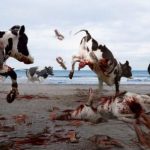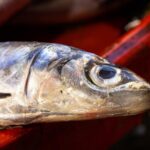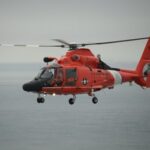Tag Archives: Division of Marine Fisheries.
Groundfish industry taking another hit with addition of at-sea monitors – Steve Urbon
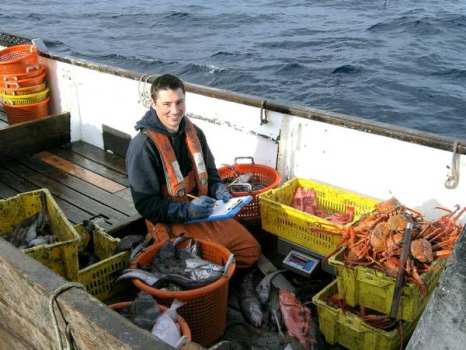 So this is how it looks. The gradual collapse of the New England groundfish industry continued last week as about two dozen people jammed into a meeting room of the state’s Division of Marine Fisheries office in the former voc-tech school on Purchase Street to argue about the distribution of disaster relief money allocated by Congress. Adding insult to injury is the impending shift of costs for at-sea monitors to the fishing boats. Fishing industry advocates liken this to a shotgun wedding, in which the boats have no choice but to sign a contract with a third party with no say in the price being paid. Read the rest here 09:09
So this is how it looks. The gradual collapse of the New England groundfish industry continued last week as about two dozen people jammed into a meeting room of the state’s Division of Marine Fisheries office in the former voc-tech school on Purchase Street to argue about the distribution of disaster relief money allocated by Congress. Adding insult to injury is the impending shift of costs for at-sea monitors to the fishing boats. Fishing industry advocates liken this to a shotgun wedding, in which the boats have no choice but to sign a contract with a third party with no say in the price being paid. Read the rest here 09:09
State floats new plan for fishing disaster money in New Bedford on Friday
 The state Division of Marine Fisheries listened to those who wanted a wider distribution of $6.7 million in federal fisheries disaster money. At a meeting of the groundfish disaster aid working group in New Bedford on Friday, the agency laid out a plan where more than $6 million of the money would be used in direct aid to fishermen. While an earlier proposal set a fairly high bar of 20,000 pounds of groundfish landings in any year from 2012 to 2014 to qualify for aid, the new plan would require 10,000 pounds of groundfish or have at least one trip in 2014 on which a vessel carried an observer. Read the rest here 10:10
The state Division of Marine Fisheries listened to those who wanted a wider distribution of $6.7 million in federal fisheries disaster money. At a meeting of the groundfish disaster aid working group in New Bedford on Friday, the agency laid out a plan where more than $6 million of the money would be used in direct aid to fishermen. While an earlier proposal set a fairly high bar of 20,000 pounds of groundfish landings in any year from 2012 to 2014 to qualify for aid, the new plan would require 10,000 pounds of groundfish or have at least one trip in 2014 on which a vessel carried an observer. Read the rest here 10:10
OUR VIEW: Let’s make waves with fishing regulations
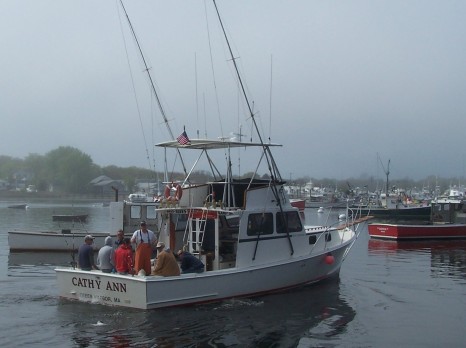
Just when it seems life can’t get harder for local fishermen, the state Division of Marine Fisheries releases another statement. The state division recently announced that the federal regulations implemented in November to restrict will remain in place for at least another year. Looks like another year of eating haddock for us. Looks like another year of hardship for the people in the fishing industry. Read the rest here 07:40
BOSTON: Fisheries summit a rallying cry
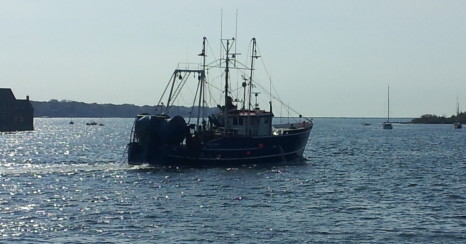 The fishermen, scientists, fishery regulators and environmentalists who slogged through slushy streets and half-cleared sidewalks below could only wish that the summit they were attending Monday had a similar sunny prospect. But this was not a meeting to announce some dramatic turnaround for the beleaguered New England fishing industry. This was a rallying of the troops in advance of a new fishing year in May that promised deeper gloom than the one just past. Read the rest here 16:56
The fishermen, scientists, fishery regulators and environmentalists who slogged through slushy streets and half-cleared sidewalks below could only wish that the summit they were attending Monday had a similar sunny prospect. But this was not a meeting to announce some dramatic turnaround for the beleaguered New England fishing industry. This was a rallying of the troops in advance of a new fishing year in May that promised deeper gloom than the one just past. Read the rest here 16:56
Boat captains ordered to stop dredging clams off of Provincetown
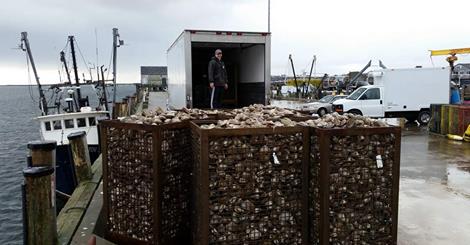 For the past month, sea clam vessels have been dredging thousands of shellfish from a 2-square-foot mile area off Herring Cove Beach. But this type of fishing — known as hydraulic dredging — is prohibited without a permit, according to a 2007 Provincetown Conservation Commission regulation. The fishermen don’t have to obey the local regulation because the state Division of Marine Fisheries, which has jurisdiction over fishing, allows it, said Monte Rome, owner of the Tom Slaughter. Read the rest here 13:10
For the past month, sea clam vessels have been dredging thousands of shellfish from a 2-square-foot mile area off Herring Cove Beach. But this type of fishing — known as hydraulic dredging — is prohibited without a permit, according to a 2007 Provincetown Conservation Commission regulation. The fishermen don’t have to obey the local regulation because the state Division of Marine Fisheries, which has jurisdiction over fishing, allows it, said Monte Rome, owner of the Tom Slaughter. Read the rest here 13:10
Details emerge on latest round of fisheries disaster aid
 Approximately 130 groundfishing permit holders are expected to qualify for disaster aid announced Wednesday, splitting up $3.8 million among them with different, catch-based rates. That’s only one group of potential recipients of an $8.3 million round of disaster money destined for the Massachusetts industry. The state released the second of three funding rounds, headed for those who didn’t qualify under the first, which went to federal permit holders who caught 5,000 pounds over the last four years. Read the rest here 07:36
Approximately 130 groundfishing permit holders are expected to qualify for disaster aid announced Wednesday, splitting up $3.8 million among them with different, catch-based rates. That’s only one group of potential recipients of an $8.3 million round of disaster money destined for the Massachusetts industry. The state released the second of three funding rounds, headed for those who didn’t qualify under the first, which went to federal permit holders who caught 5,000 pounds over the last four years. Read the rest here 07:36
Herring, tuna fishing interests collide at sea
 The collision of fishing interests came Saturday night into Sunday morning, out along Jeffreys Ledge, ground zero for the extraordinarily hard bluefin tuna bite that unfolded in the waters off Cape Ann throughout the middle of October. By all accounts, including those of NOAA Fisheries, the state’s and even Moody, the herring boats had every right to be fishing in the area as long as they didn’t violate the spawning closure by fishing before 12:01 a.m. Sunday and landing any of their catch before Monday at 12:01 a.m. Read the rest here 14:31
The collision of fishing interests came Saturday night into Sunday morning, out along Jeffreys Ledge, ground zero for the extraordinarily hard bluefin tuna bite that unfolded in the waters off Cape Ann throughout the middle of October. By all accounts, including those of NOAA Fisheries, the state’s and even Moody, the herring boats had every right to be fishing in the area as long as they didn’t violate the spawning closure by fishing before 12:01 a.m. Sunday and landing any of their catch before Monday at 12:01 a.m. Read the rest here 14:31
North Carolina: Commercial drum season reopens
 While commercial fishermen said they saw a large abundance of red drum in the local waters and deny implications of hurting the resource, concerns have been raised by Coastal Conservation Association about the large overage and the possibility of illegal targeting of red drum by commercial fishermen. Read the rest here 19:15
While commercial fishermen said they saw a large abundance of red drum in the local waters and deny implications of hurting the resource, concerns have been raised by Coastal Conservation Association about the large overage and the possibility of illegal targeting of red drum by commercial fishermen. Read the rest here 19:15
RALEIGH NC: Observer funds, JEA clear state legislature
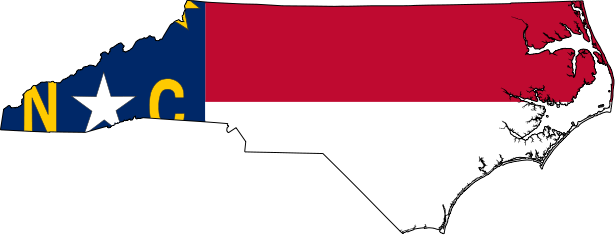 The legislature is pushing forward with a budget that will create a new fund for an At-Sea Observer Program for commercial fisheries and allow the state Division of Marine Fisheries to make a joint enforcement agreement with the National Marine Fisheries Service. While a commercial fishing organization first proposed the fund, a joint agreement between state and federal fishery agencies. <Read more here> 11:03
The legislature is pushing forward with a budget that will create a new fund for an At-Sea Observer Program for commercial fisheries and allow the state Division of Marine Fisheries to make a joint enforcement agreement with the National Marine Fisheries Service. While a commercial fishing organization first proposed the fund, a joint agreement between state and federal fishery agencies. <Read more here> 11:03
Scheduled Public Meetings for the groundfish disaster spending plan in Massachusetts
 4 public hearings are scheduled . July 14 Gloucester, July 15 Plymouth, July 16 New Bedford, July 17 Chatham. Read more here 19:08
4 public hearings are scheduled . July 14 Gloucester, July 15 Plymouth, July 16 New Bedford, July 17 Chatham. Read more here 19:08
U.S. Fish and Wildlife Service Monomoy wildlife refuge plan fuels anger in Chatham
 The plan contains a blanket prohibition on harvesting mussels, which are considered an important food source for migrating ducks such as eiders. It also prohibited the use of a brine solution that forces fast-digging razor clams to the surface making them easier to catch. Any type of gear that was dragged along the bottom, like a scallop dredge, is also not allowed in those waters as a new measure intended to help restore sea-floor habitat like eelgrass. Read more here 08:56
The plan contains a blanket prohibition on harvesting mussels, which are considered an important food source for migrating ducks such as eiders. It also prohibited the use of a brine solution that forces fast-digging razor clams to the surface making them easier to catch. Any type of gear that was dragged along the bottom, like a scallop dredge, is also not allowed in those waters as a new measure intended to help restore sea-floor habitat like eelgrass. Read more here 08:56
After record lows, herring stock is now healthier, living longer
 After years of lobbying and litigation by local fishermen and environmental groups, the fisheries service and the New England Fishery Management Council are considering regulations to make sure the offshore herring fleet isn’t also catching river herring, but the majority of their runs remain dammed or neglected. A 2001-2002 survey looked at 215 Massachusetts coastal waterways and found 380 blockages, including dams, that kept fish from spawning grounds. The same survey found that almost half the 175 structures intended to get fish past dams were not functioning. Read more here 09:13
After years of lobbying and litigation by local fishermen and environmental groups, the fisheries service and the New England Fishery Management Council are considering regulations to make sure the offshore herring fleet isn’t also catching river herring, but the majority of their runs remain dammed or neglected. A 2001-2002 survey looked at 215 Massachusetts coastal waterways and found 380 blockages, including dams, that kept fish from spawning grounds. The same survey found that almost half the 175 structures intended to get fish past dams were not functioning. Read more here 09:13
Scientists track drop in lobster numbers
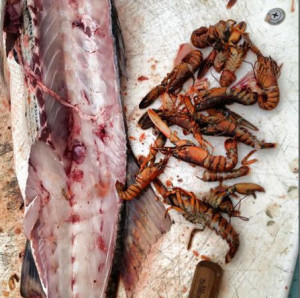 Marine scientists are not sure what is causing the decline in baby lobster settlements in their traditional near-shore, rocky habitats except they now seem to rule out overfishing. Theories for the decline include the effects of predators, warming ocean temperatures, pollution and shifting availability of food as possible causes. salemnews Read more here 09:38
Marine scientists are not sure what is causing the decline in baby lobster settlements in their traditional near-shore, rocky habitats except they now seem to rule out overfishing. Theories for the decline include the effects of predators, warming ocean temperatures, pollution and shifting availability of food as possible causes. salemnews Read more here 09:38
‘Lifeline’ for Bay State’s seafood industry?
BOSTON — A marketing program encouraging Bay Staters to buy locally caught seafood is what some Cape lawmakers and the Senate majority leader think will do the trick to turn around Massachusetts’ lagging seafood industry. Read more@capecodonline 08:36
Bass and Bivalves – another Vineyard waterfront success story.

The best treat available in the local fish market, and in the restaurants, is something you haven’t eaten in a while — black sea bass, another Vineyard waterfront success story. Striped Bass Hiccup – The state Division of Marine Fisheries will reopen the commercial striped bass fishing season on Sunday for one day. Shellfish Season – There is a bounty of juvenile oysters in Tisbury Great Pond. more@mvgazette 12:36
North Carolina Fisheries and Wildlife officers cover wide jurisdiction – 4,000 miles of shoreline plus 2.5 million acres of marine and estuarine waters.

The Division of Marine Fisheries’ jurisdiction covers all coastal waters and extends three miles offshore while the Wildlifre Resources Commission is primarily responsible for inland, or fresh, waters. Both patrol joint waters. There are 3,169 active commercial fishermen and 1.5 million recreational fishermen in coastal and joint brackish waters. more@topsailadvertiser 08:43
Horseshoe luck – Dwindling horseshoe stocks – Division of Marine Fisheries has requested additional data

To be fair, the Division of Marine Fisheries makes several good points. Hard data is preferable to anecdotal observations; the more statistical information available, the better the decision-making process. Similarly, Fisheries Director Paul Diodati makes a good argument when he notes that a ban in Wellfleet Harbor would only push the problem somewhere else. continued@capecodtimes
Sometimes in fishing, less is more – (hmm)
Commercial fishermen caught fewer fish last year than in 2011, but may have pocketed more money, data from the state Division of Marine Fisheries shows. The watermen hoisted a total of 56.7 million pounds of seafood from North Carolina waters in 2012, a 16 percent drop from 2011, according to division’s Annual Fisheries Bulletin for 2012. But the value of that harvest jumped to $73 million, a 2.6 percent increase officials said was likely due to the shifting catch totals for different species of fish. [email protected]






 The Division of Marine Fisheries said it will cap the amount of disaster relief available to individuals who hold groundfishing permits — essentially cutting in half the amount of money destined for one man. Boat owner Carlos Rafael threatened to sue the state for reneging on the $617,500 he says he’s due — or $32,500, 19 times over. “I will straighten ’em out,” said Rafael, sitting in his South Front street office and phoning his lawyer.
The Division of Marine Fisheries said it will cap the amount of disaster relief available to individuals who hold groundfishing permits — essentially cutting in half the amount of money destined for one man. Boat owner Carlos Rafael threatened to sue the state for reneging on the $617,500 he says he’s due — or $32,500, 19 times over. “I will straighten ’em out,” said Rafael, sitting in his South Front street office and phoning his lawyer. 


























